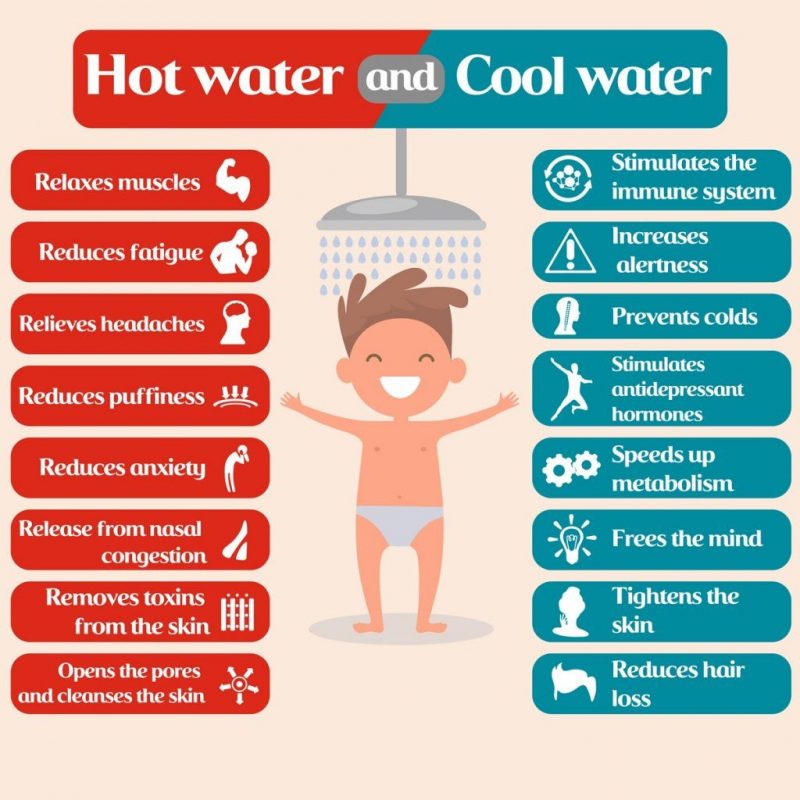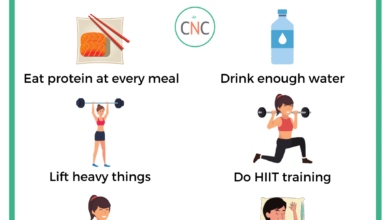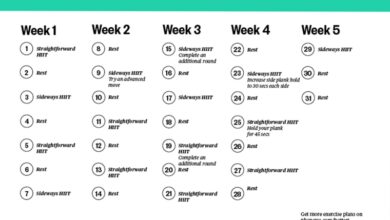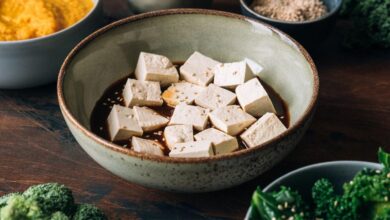
Could a Hot Bath Give You Gym-Worthy Heart Benefits?
Could a hot bath have gym worthy heart benefits – Could a hot bath have gym-worthy heart benefits? It might sound too good to be true, but there’s growing evidence that suggests a relaxing soak might actually offer some surprising cardiovascular advantages. Imagine a world where a warm bath could be a substitute for a grueling workout, boosting your heart health without breaking a sweat.
While it’s not a complete replacement for exercise, studies are uncovering how a hot bath can positively impact your heart rate, blood pressure, and even muscle recovery.
The idea of a hot bath mimicking the benefits of exercise may seem like a fantasy, but the science behind it is intriguing. Hot baths trigger a physiological response similar to exercise, increasing your heart rate and blood flow.
This effect, known as passive heating, can lead to improvements in cardiovascular health, similar to what you’d experience during a moderate workout. Of course, it’s important to approach this with caution and understand the limitations and potential risks associated with hot baths, especially for those with pre-existing health conditions.
Cardiovascular Benefits of Hot Baths
Soaking in a hot bath is a relaxing and enjoyable experience, but did you know it could also have positive effects on your heart health? While not a substitute for traditional exercise, hot baths can offer cardiovascular benefits by stimulating your circulatory system and promoting blood flow.
Physiological Mechanisms
Hot baths induce a series of physiological changes that can benefit your cardiovascular system. When you immerse yourself in hot water, your body temperature rises, triggering a series of responses designed to cool you down. Your heart rate increases, and blood vessels dilate, leading to increased blood flow throughout the body.
This increased blood flow helps deliver oxygen and nutrients to your muscles and organs, while simultaneously removing waste products.
Research Findings on Cardiovascular Health
Several studies have investigated the impact of hot baths on cardiovascular health, revealing promising results.
Heart Rate Variability
- Studies have shown that hot baths can increase heart rate variability (HRV), a measure of the heart’s ability to adapt to changes in demand.
- Higher HRV is generally associated with better cardiovascular health and reduced risk of heart disease.
Blood Flow
- Hot baths can improve blood flow to the extremities, particularly the hands and feet.
- This increased blood flow can help reduce the risk of peripheral artery disease (PAD), a condition that affects blood flow to the limbs.
Comparison to Exercise
While hot baths offer some cardiovascular benefits, it’s important to remember that they are not a replacement for exercise. Exercise, especially aerobic exercise, provides a more comprehensive workout for your heart and lungs. However, hot baths can be a complementary strategy for improving cardiovascular health, particularly for individuals who may find traditional exercise challenging or have limitations.
So, you’re wondering if a hot bath can actually be a workout for your heart? While it’s not quite the same as hitting the gym, it can be a relaxing way to warm up on a chilly day. And if you’re looking for some healthy and satisfying meals to fuel your winter days, check out these 9 hearty winter soups under 360 calories ! They’re packed with flavor and nutrients, so you can feel good about indulging in a warm bowl of goodness.
Whether you’re taking a relaxing bath or enjoying a hearty soup, remember to prioritize self-care during the colder months.
Hot Baths and Muscle Recovery

After a strenuous workout, your muscles may feel sore and stiff. This is a common experience, and it’s often attributed to microscopic tears in the muscle fibers. While these tears are a natural part of muscle growth and adaptation, they can also cause discomfort and limit your ability to perform at your best.
So, could a hot bath really be as good as a gym workout for your heart? It’s a question that’s been popping up lately, and while the research is still ongoing, it’s definitely something to consider. And speaking of healthy choices, if you’re looking for some delicious pumpkin-flavored snacks to fuel your workouts, check out this list of 8 RD-approved pumpkin flavored snacks to buy at Trader Joe’s.
After all, a healthy diet is just as important as exercise, no matter how you choose to get your heart pumping!
Hot baths, also known as warm baths, have been suggested as a potential aid in muscle recovery. They offer several potential benefits that can help soothe those aching muscles and promote faster recovery.
The Potential Benefits of Hot Baths for Muscle Recovery
Hot baths can potentially contribute to muscle recovery by reducing inflammation and soreness. The warmth of the water helps to dilate blood vessels, increasing blood flow to the muscles. This increased blood flow can help deliver nutrients and oxygen to the muscles while removing waste products, such as lactic acid.
This process can aid in reducing inflammation and promoting healing.
Incorporating Hot Baths into a Post-Workout Routine, Could a hot bath have gym worthy heart benefits
Hot baths can be easily incorporated into a post-workout routine. Here are some ways to maximize their potential benefits:
- Timing:Ideally, take a hot bath within 30-60 minutes after your workout. This allows the benefits of increased blood flow to reach the muscles while they are still warm and receptive.
- Temperature:The ideal temperature for a hot bath for muscle recovery is around 100-104°F (38-40°C). It’s important to avoid excessively hot water, as this can lead to overheating or burns.
- Duration:Aim for a bath duration of 15-20 minutes. This provides enough time for the warmth to penetrate the muscles and promote blood flow.
- Additives:Consider adding Epsom salts to your bath. Epsom salts contain magnesium sulfate, which can help relax muscles and reduce inflammation.
Hot Baths vs. Cold Baths for Muscle Recovery
While hot baths are often recommended for muscle recovery, cold baths, also known as ice baths, are also popular. The effects of hot and cold baths on muscle recovery are different.
So, you’re thinking a hot bath might be a gym workout in disguise? While that might be a bit of a stretch, there’s definitely something to be said for the relaxing effects of a warm soak. It reminds me of one of the surprising things I learned from 3 surprising takeaways about being a registered dietitian – the importance of stress management in overall health.
And while a hot bath might not replace a proper workout, it could be a great way to unwind and help your body recover after a tough gym session.
- Hot Baths:Hot baths primarily focus on increasing blood flow and reducing inflammation. This can help with muscle soreness and stiffness.
- Cold Baths:Cold baths, on the other hand, aim to reduce inflammation and pain by constricting blood vessels. They can also help with muscle recovery by reducing muscle fatigue and promoting faster recovery from strenuous exercise.
The choice between hot and cold baths for muscle recovery depends on individual preferences and the type of workout performed.
Limitations and Considerations: Could A Hot Bath Have Gym Worthy Heart Benefits
While hot baths offer potential cardiovascular benefits, it’s crucial to acknowledge certain limitations and considerations to ensure safety and effectiveness. Individuals with specific health conditions should exercise caution and consult a healthcare professional before incorporating hot baths into their fitness routine.
Potential Risks for Individuals with Certain Health Conditions
Hot baths can elevate body temperature, potentially impacting individuals with pre-existing conditions. It’s crucial to understand the potential risks and consult a healthcare professional for personalized advice.
- Heart disease:Individuals with heart disease should exercise caution as hot baths can increase heart rate and blood pressure. In some cases, it may be advisable to avoid hot baths altogether.
- High blood pressure:Hot baths can temporarily increase blood pressure, potentially posing a risk for individuals with hypertension. It’s important to monitor blood pressure and seek medical guidance if experiencing any concerns.
- Peripheral artery disease (PAD):Hot baths can worsen symptoms of PAD by constricting blood vessels in the extremities. Individuals with PAD should avoid hot baths or consult their physician for personalized advice.
- Diabetes:Individuals with diabetes may have impaired temperature regulation, making them more susceptible to heat-related complications. It’s essential to monitor blood sugar levels and consult a healthcare professional before taking hot baths.
- Pregnancy:Hot baths can increase core body temperature, potentially posing risks during pregnancy. Consult a healthcare professional for personalized advice and avoid prolonged hot baths.
Importance of Consulting a Healthcare Professional
Before incorporating hot baths into a fitness routine, it’s essential to consult a healthcare professional. They can assess individual health conditions, identify potential risks, and provide personalized recommendations.
Potential for Dehydration
Hot baths can lead to dehydration due to sweating. It’s essential to stay hydrated by drinking plenty of water before, during, and after hot baths. Staying hydrated helps maintain blood volume and prevents complications related to dehydration.
Alternative Methods for Heart Health
While hot baths can offer some cardiovascular benefits, it’s crucial to remember that they shouldn’t replace other established heart-healthy practices. Integrating various methods into your lifestyle is key to optimizing your heart health.
Comparison of Heart-Healthy Activities
Understanding the benefits and drawbacks of different heart-healthy activities can help you make informed choices. Here’s a comparison of hot baths, exercise, and other heart-healthy activities:
| Activity | Benefits | Drawbacks |
|---|---|---|
| Hot Baths |
|
|
| Exercise |
|
|
| Healthy Diet |
|
|
| Stress Management Techniques |
|
|
Frequency and Duration of Hot Baths for Cardiovascular Health
The recommended frequency and duration of hot baths for cardiovascular health can vary depending on individual factors, such as health status, tolerance, and goals. However, a general guideline is:
2-3 times per week, for 15-20 minutes per bath.
This frequency and duration allow for potential benefits without overexerting the cardiovascular system. It’s crucial to listen to your body and adjust accordingly.
Sample Workout Routine Incorporating Hot Baths
Here’s a sample workout routine that incorporates hot baths for recovery and overall fitness: Monday:* Workout:Moderate-intensity cardio (e.g., brisk walking, jogging, cycling) for 30 minutes.
Recovery Hot bath for 15-20 minutes. Tuesday:* Workout:Strength training (e.g., weightlifting, bodyweight exercises) focusing on major muscle groups.
Recovery Active recovery (e.g., light stretching, yoga) and a hot bath for 15-20 minutes. Wednesday:* Workout:Rest day.
Recovery Hot bath for 15-20 minutes. Thursday:* Workout:Moderate-intensity cardio (e.g., brisk walking, jogging, cycling) for 30 minutes.
Recovery Hot bath for 15-20 minutes. Friday:* Workout:Strength training (e.g., weightlifting, bodyweight exercises) focusing on major muscle groups.
Recovery Active recovery (e.g., light stretching, yoga) and a hot bath for 15-20 minutes. Saturday:* Workout:Rest day.
Recovery Hot bath for 15-20 minutes. Sunday:* Workout:Long, slow cardio (e.g., leisurely walk, cycling) for 45-60 minutes.
Recovery Hot bath for 15-20 minutes.This routine provides a balance of cardiovascular exercise, strength training, and recovery, with hot baths incorporated for enhanced relaxation and potential cardiovascular benefits. Remember to consult with your doctor before starting any new exercise program, especially if you have any underlying health conditions.
Last Point

While a hot bath won’t replace a full-fledged workout, it can be a valuable addition to your fitness routine, particularly for recovery and overall well-being. The potential benefits of a warm soak for your heart health, muscle recovery, and stress reduction are compelling, but remember to consult your doctor before incorporating hot baths into your regimen.
Ultimately, the key to a healthy lifestyle lies in a balanced approach that includes exercise, proper nutrition, and relaxation techniques. So, the next time you’re looking for a way to unwind after a tough workout, consider a relaxing hot bath – it might just be the secret ingredient to a healthier heart and a happier you.






